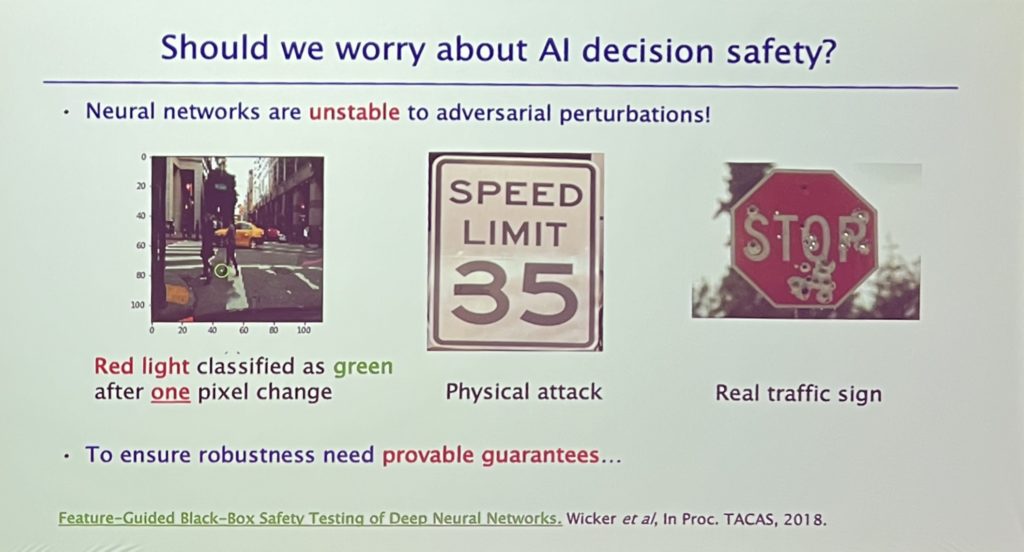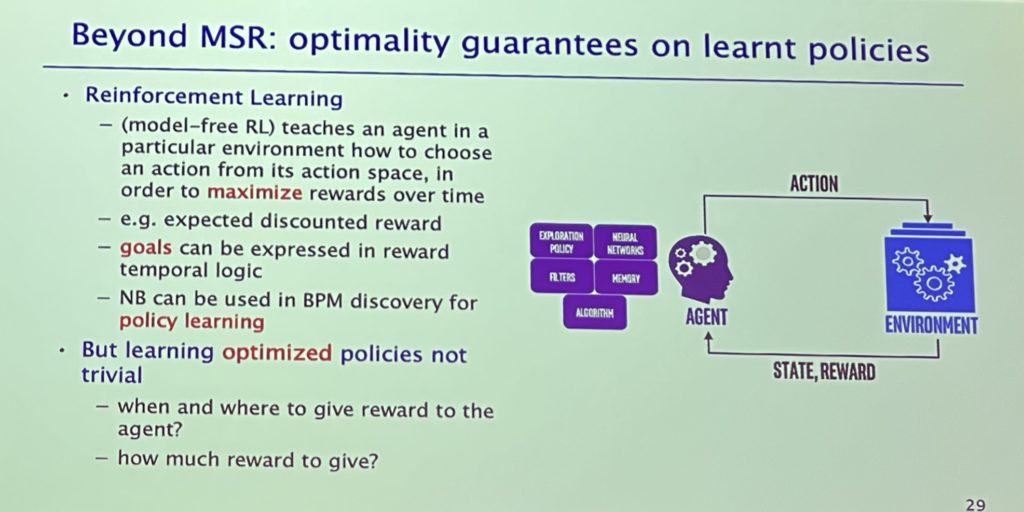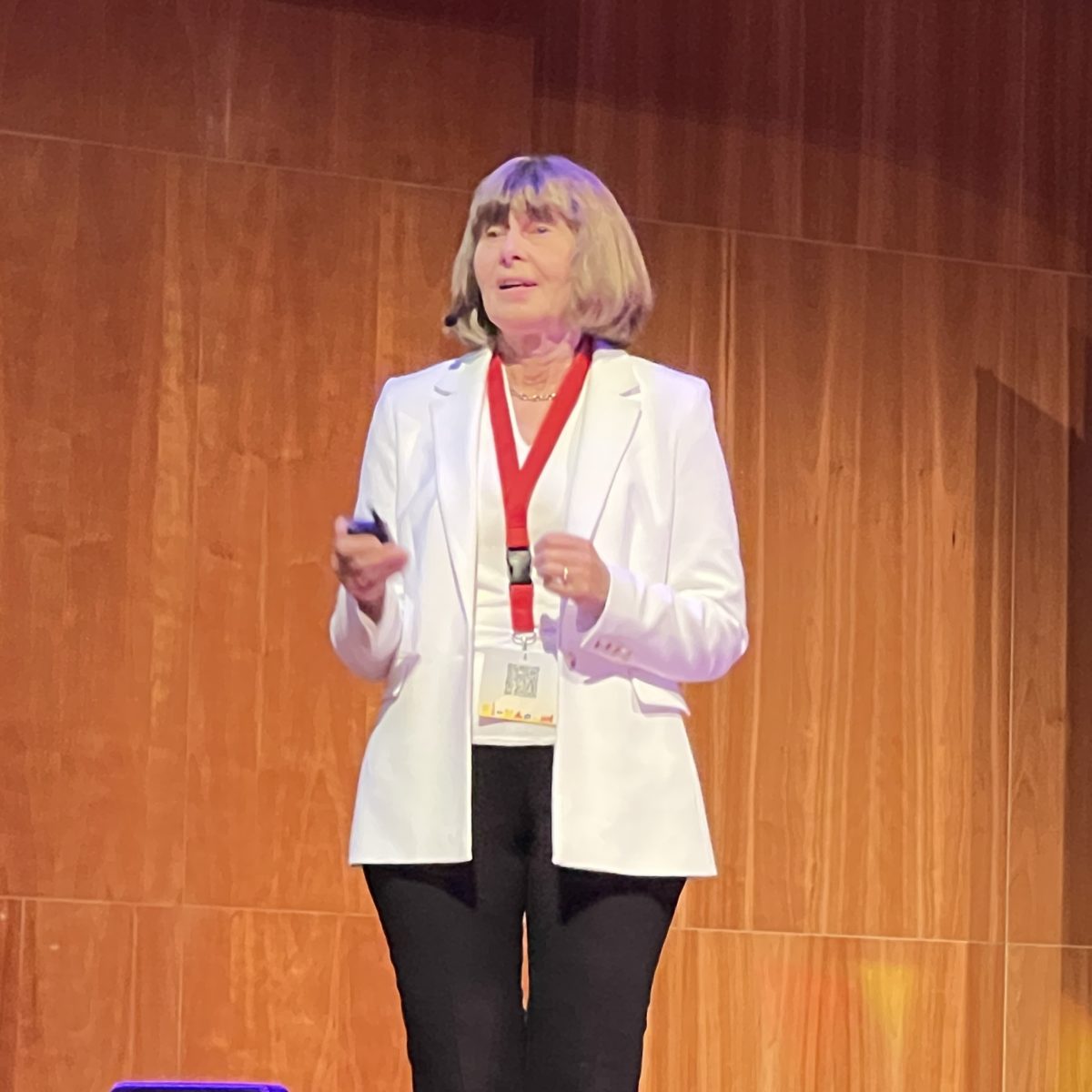The second day of the main conference kicked off with a keynote by Marta Kwiatkowska, Professor of Computer Science at Oxford, on AI and machine learning in BPM. She started with some background on AI and deep learning, and linked this to automated process model discovery (process mining), simulation, what-if analysis, predictions and automated decisions. She posed the question of whether we should be worried about the safety of AI decisions, or at least advance the formal methods for provable guarantees in machine learning, and the more challenging topic of formal verification for neural networks.

She has done significant research on robustness for neural networks and the development of provable guarantees, and offered some recent directions of these applications in BPM. She showed the basics of calculating and applying robustness guarantees for image and video classification, and also for text classification/replacement. In the BPM world, she discussed using language-type prediction models for event logs, evaluating the robustness of decision functions to causal interventions, and the concept of reinforcement learning for teaching agents how to choose an action.

As expected, much of the application of AI to process execution is to the decisions within processes – automating decisions, or providing “next best action” recommendations to human actors at a particular process activity. Safety assurances and accountability/explainability are particularly important in these scenarios.
Given the popularity of AI in general, a very timely look at how it can be applied to BPM in ways that maintain robustness and correctness.

